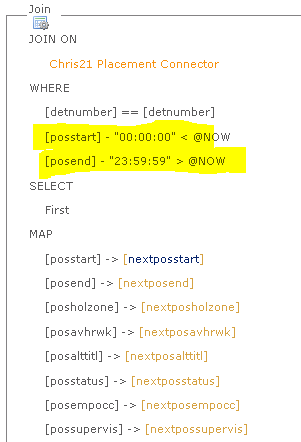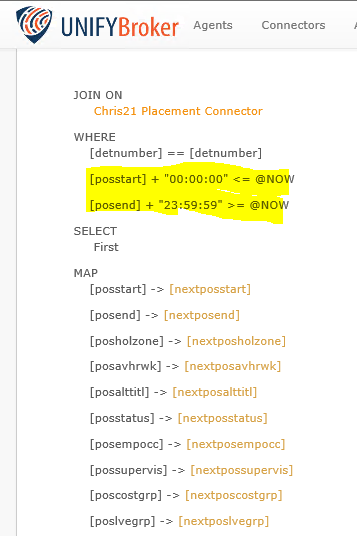
Difference between the Time Offset configuration in IDB 4 and IDB 5
Hi Team,
In IDB 4, the Join Transformation has this configuration (see attached screenshot)

Whereas, in IDB 5 looks like this (see attached screenshot)

How come in IDB 4 its a - sign between [posstart] and time offset, whereas in IDB 5 its a + sign? What are the difference? Thank you
Regards,
Marc Laroza
Answer

Hi Marc
I believe the v4 UI was incorrect, and it was updated to reflect how the offset times are actually calculated. I don't think the actual behaviour of the transformation changed, but you should double check this to be sure.

Thank you Beau, with regards to the >= and <= in IDB v5 and > and sign in IDB v4. I can't seem to edit those inequality symbols on either versions. Does it matter?

No, it doesn't matter, as there would be no noticeable difference due to how precise timestamp comparisons are.

Hi Beau,
Thank you for your response, really appreciate it.
I have another question, with the same screenshots above for the two Join Transformations in both IDB v4 and IDB v5. How would those two versions read the Where clause if the posend is NULL?
Because what happens for example, detnumber = 12345, posstart = 24/Nov/2016 and posend = NULL. In IDB v4, the nextpos* attributes does not get populated. Whereas, in IDB v5 the nextpos* attributes gets populated.

Nulls for start and end timestamps are treated as is they were the beginning and end of time, respectively. This is the intended behaviour, and has always been as far as I'm aware. The behaviour you're seeing in v4 may be the result of a bug that was fixed in a later release.
Customer support service by UserEcho


Hi Marc
I believe the v4 UI was incorrect, and it was updated to reflect how the offset times are actually calculated. I don't think the actual behaviour of the transformation changed, but you should double check this to be sure.